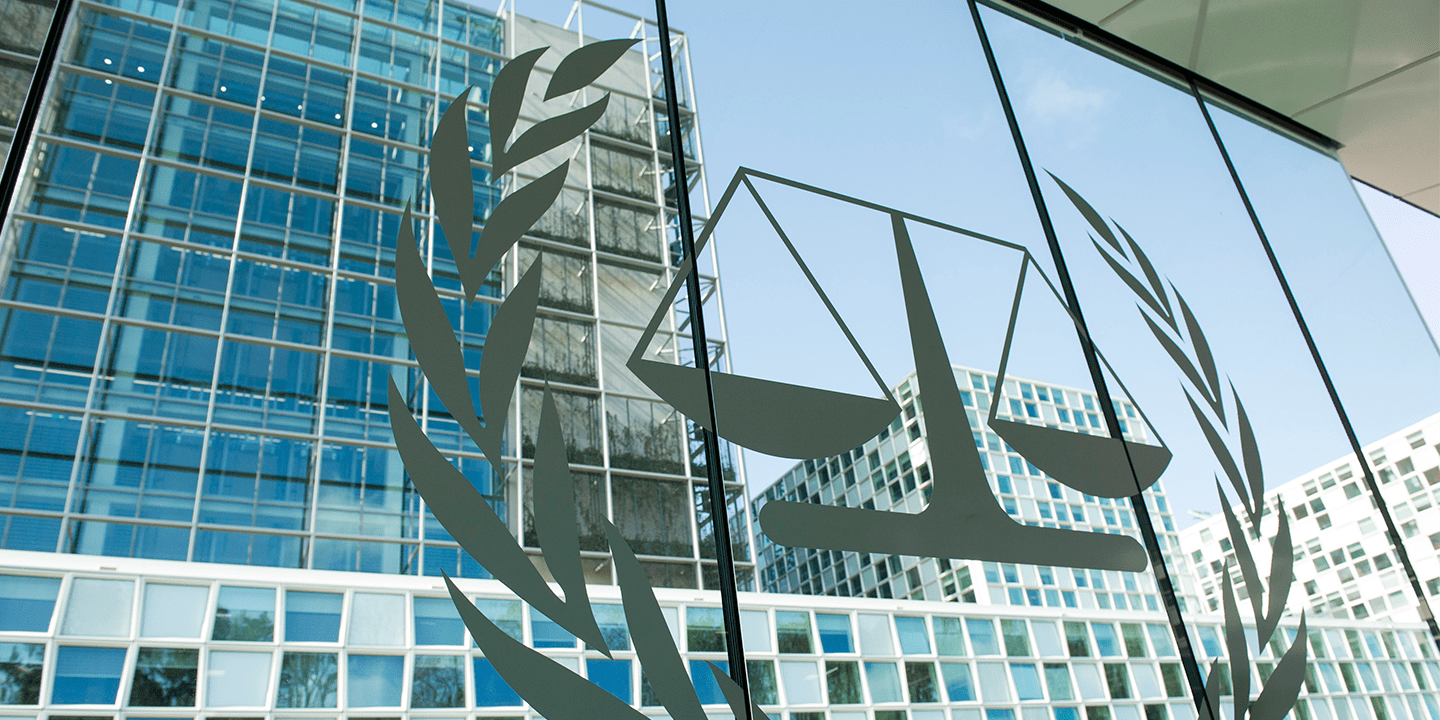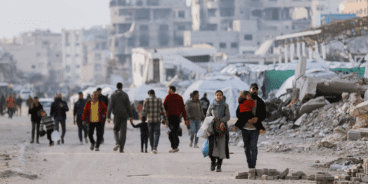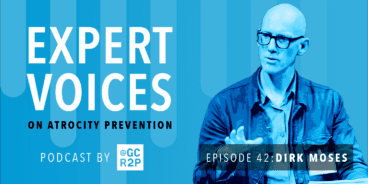

Atrocity Alert No. 339: Ukraine, Iran and the Central Sahel
Atrocity Alert is a weekly publication by the Global Centre for the Responsibility to Protect highlighting situations where populations are at risk of, or are enduring, mass atrocity crimes.
INTERNATIONAL CRIMINAL COURT ISSUES ARREST WARRANTS FOR ATROCITIES IN UKRAINE
On Friday, 17 March, the Pre-Trial Chamber II of the International Criminal Court (ICC) issued two arrest warrants for Vladimir Vladimirovich Putin, President of Russia, and Maria Alekseyevna Lvova-Belova, Commissioner for Children’s Rights in the Office of the President of Russia, for their alleged responsibility for the war crimes of unlawful deportation and transfer of population from occupied areas of Ukraine to Russia. The incidents identified by the Office of the Prosecutor (OTP) include the deportation of hundreds of children taken from orphanages and care homes, then given up for adoption in Russia. According to the OTP, these incidents demonstrate an intention to permanently remove these children from their own country. Karim Khan, Chief Prosecutor of the ICC, said that, “the law must provide shelter to the most vulnerable… we must put the experiences of children in conflict at the centre of our work.”
Last week’s historic arrest warrants came a day after the UN Human Rights Council-mandated Commission of Inquiry (CoI) on Ukraine reported on violations of international law committed by Russian authorities that may amount to war crimes and crimes against humanity. Building upon its first report, the CoI documented further evidence of war crimes, including killings, torture, inhumane treatment, unlawful confinement, rape and unlawful transfers and deportations of children. According to the CoI, the wave of attacks by Russian forces on Ukraine’s energy-related infrastructure since October, as well as the systematic use of torture in Russian-occupied areas, may amount to crimes against humanity. The CoI’s findings may be important for current and future accountability efforts.
While the arrest warrants are of important symbolic value to the victims and survivors of crimes committed in Ukraine, the practical implications of the warrants are likely limited. Russia has not recognized the ICC’s jurisdiction, and the Court has no powers to enforce its own arrest warrants. However, all 123 countries that are States Parties to the Rome Statute are now under the legal obligation to arrest President Putin or Lvova-Belova if they were to travel to their country.
The overwhelming support from states for the ICC’s investigation into Ukraine, including through financial and human resources, underscores the international community’s strong commitment to bringing those responsible for the commission of atrocity crimes to justice. In a statement on 15 March, the Coalition for the International Criminal Court, of which the Global Centre for the Responsibility to Protect is a member, said that the support for the Ukraine investigation is a stark reminder that “more is needed to effectively deliver justice for victims of Rome Statute crimes around the world” and provides an opportunity “to make a global commitment that independent and universal justice be the norm, wherever Rome Statute crimes are committed.”
UN EXPERT SAYS LIKELY CRIMES AGAINST HUMANITY COMMITTED BY IRANIAN AUTHORITIES
In his latest report presented to the UN Human Rights Council on 20 March, the Special Rapporteur on the situation of human rights in Iran, Javaid Rehman, concluded that the scale and gravity of violations committed by Iranian authorities in recent months pointed to the possible commission of the crimes against humanity of murder, imprisonment, enforced disappearances, torture, rape and sexual violence and persecution.
The Special Rapporteur emphasized in his briefing that “the most serious human rights violations in the Islamic Republic of Iran over the past four decades” have been committed since the death of Jina Mahsa Amini on 16 September, who was arrested by the so-called “morality police” for allegedly violating Iran’s strict requirements on women’s dress. Reports suggest that her death was due to alleged torture and ill-treatment. The Special Rapporteur stressed that Amini’s death was not an isolated event, but instead one incident in a long series of extreme violence committed against women and girls by Iranian authorities.
Iranian authorities have refused to conduct an impartial or transparent inquiry into the death of Amini. Mass peaceful protests have erupted since September, with the focus of the demonstrations expanding from accountability for Amini’s death to broader grievances, including demands for fundamental political and social change, as well as the protection and fulfillment of all human rights.
Iranian security forces have violently cracked down against the protesters. The Special Rapporteur’s report documented the use of unlawful lethal force against those demonstrating, including evidence of unarmed protesters struck by live ammunition or beaten to death. More than 520 people, including 71 children, have been killed, and hundreds of protesters severely injured. The report emphasized that ethnic and religious minorities have been disproportionately affected by the recent wave of repression and killings. Iranian authorities have also carried out mass arbitrary arrests and detentions of protesters, with over 22,000 people arrested, as well as attempted to shut down all avenues of freedom of expression with internet disruptions and social media censorship.
In addition to these likely crimes against humanity, the Special Rapporteur reported on “exponentially increasing” human rights violations in the country. In 2022 Iranian authorities carried out the highest number of executions in the past five years. The death penalty was used disproportionately against persons belonging to ethnic and religious minorities.
The international community must support all efforts towards accountability with respect to possible international crimes committed by Iranian authorities since the start of the protests. Member states should ensure full support for the newly mandated Independent International Fact-Finding Mission on the Islamic Republic of Iran.
“INCREASINGLY BRUTAL” CONFLICT THREATENS MILLIONS OF CHILDREN IN THE CENTRAL SAHEL
On 17 March the UN Children’s Fund (UNICEF) warned that spiraling conflict is putting the lives and futures of millions of children in the Central Sahel – Burkina Faso, Mali and Niger – at risk. Children across the region are facing rising violations that may constitute war crimes or crimes against humanity. “The conflict may not have clear boundaries, there may not be headline-grabbing battles, but slowly and surely things have been getting worse for children, and millions of them are now caught up in the centre of this crisis,” said UNICEF spokesperson John James.
According to UNICEF, 2022 was likely the deadliest for children in the Central Sahel since the crisis began in northern Mali over a decade ago. Children have increasingly become victims of intensifying military clashes or directly targeted by armed Islamist groups affiliated with al-Qaeda and the so-called Islamic State. In Burkina Faso, three times more children were killed during the first nine months of 2022 than in the same period in 2021, according to UN-verified data, with most dying from gunshot wounds or due to improvised explosive devices or explosive remnants of war.
Armed Islamist groups are also recruiting children and forcing them to fight or work in support roles. In Niger, the UN documented over 200 grave violations against children between July and September 2022 in the tri-border area, most of them involving the forced recruitment and use of children. In Mali, there were more than 480 verified cases of recruitment and use of children during the first half of 2022 alone, a threefold increase compared to the same period in 2021.
Meanwhile, some armed Islamist groups are systematically using blockades against entire towns and sabotaging water networks as deliberate tactics to forcibly displace communities. UNICEF noted that these tactics are inflicting collective suffering and making survival increasingly difficult, as communities in these areas already face severe food and water scarcity. The situation in Djibo, Burkina Faso, is particularly dire, as the town has been blockaded since February 2022 – effectively imprisoning the approximately 350,000 residents – and has endured a significant increase in attacks on water facilities.
All armed actors in the Central Sahel must abide by their obligations under international humanitarian and human rights law, including ceasing their attacks on children and critical civilian infrastructure. Authorities should engage with the UN on concrete action plans to end grave violations against children. The governments across the Central Sahel, along with technical and financial partners, must expand access to vital social services and protection.
Related Content


Atrocity Alert No. 433: Israel and the Occupied Palestinian Territory, Myanmar (Burma) and Mali
